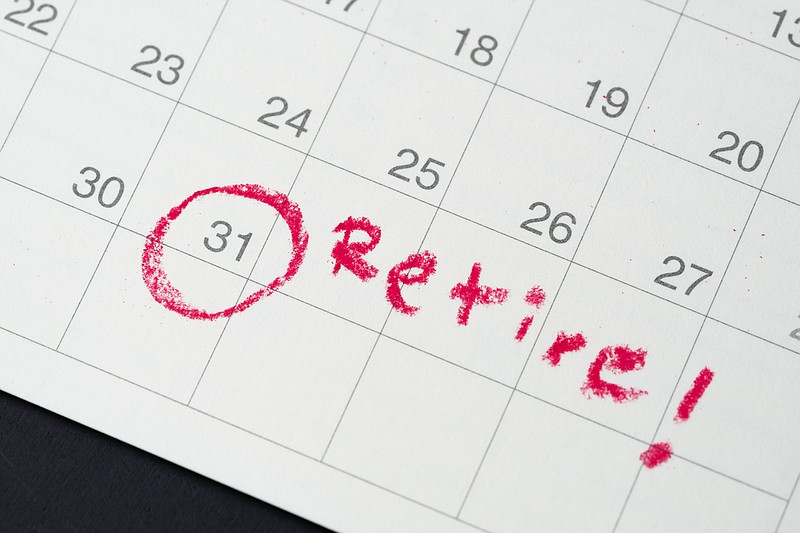Whether it's when you turn 65 or 70 or beyond, your career will eventually come to an end.
More often than not, that comes as a shock.
Let's say your standing among peers has slipped slightly and your phone doesn't ring as much, not many people ask you for your opinion anymore, the tech swirl has passed you by and darn those crazy millennials anyway.
You're about to become what you've worked hard all your life to be - retired.
Can't wait for Social Security, Medicare and that pension. Except that, with yet another new year staring at you, you're asking yourself, "When that day comes, what exactly will I do?"
Unless you have some idea of targeted non-work activities - pursue favorite hobbies, travel, work on your golf game, travel some more, tend to your garden, volunteer, write the next semi-great American novel - you're not quite ready to retire.
Because if you're not excited about what soon will be your new life, it's going to be a very unfulfilling, even frustrating, experience.
You've got enough free time to do what you want
Let's say you're a physician.
You're now of "a certain age" and reached the point where you'd rather not tend to the niggling aches and pains of your patients, at least not on a daily basis.
Goodness knows, you've earned the right to feel that way.
Your pockets are sufficiently full and finally, you've got enough free time to do whatever you feel like doing.
You've given this considerable thought and decided on a New Year's resolution: Reduce my weekly workload gradually, ease out of the daily grind, and just go into the
office Mondays, Wednesdays and Fridays.
Sounds like a reasonable plan.
But make sure you have a realistic plan about what you're going to do when you've phased into that shortened work schedule.
Will you get bored? Or annoyed?
Don't be surprised if you're taking Tuesday off and you get a phone call from one of your "Monday patients" who wants your advice about a serious medical condition.
Except it's Tuesday. You feel obligated, of course, to respond as a professional and do your best to offer a diagnosis for that patient's ailment, which requires your immediate attention.
Trouble is, you're about to tee off on the third hole and you're hitting the ball straight and long, and putting like a demon.
A few holes later, another patient interrupts your backswing and it's an emergency.
That's what you get for answering the phone. Welcome to semi-retirement.
What drove you to get into the business
Here's another example, among so many I hear these days from fellow "boomers":
You own a successful marketing agency that you built from scratch because you're smart, aggressive and creative, gifts that inspired you to launch your firm in the first place.
The years have come and gone and you've reached the point where those "in the know" readily know your name and good work. You're the glue, the one who lands the big-dog clients.
In fact, your name is the agency.
Except, you're still working like a demon, because no one else does what you do quite as well as you. Last time you counted, that meant putting in another 60-hour week.
You're tired of it.
Not only that, you've reached the point where you dread going into the office.
Too many HR hassles, no-win hiring and firing decisions, irascible clients, petty feuds among your hand-picked staffers who should know better.
You say to yourself, "OK, maybe it's time to sell the business."
And that's what you try to do, except when you go looking for a buyer, you're told that what they really want is you. Otherwise, no deal.
I run into situations like that all the time - accountants, lawyers, restaurant owners, whatever.
They've reached a level of success that's become "what next?" And they desperately want to get out.
It's either a case of "I've made it, but I don't feel challenged anymore," or "I'm too busy and I don't like it."
Does that sound like you?
To have a happier new year and beyond, better plan ahead.

